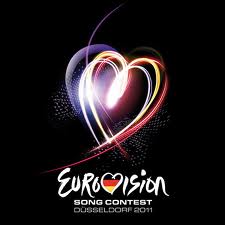The Eurovision Song Contest

A Spectacle At The Expense Of The Song?
The Eurovision Song Contest, a beacon of international entertainment since its inception in 1956, has long prided itself on fostering unity through music. It remains a dazzling, exuberant spectacle that brings nations together in a shared celebration of artistry, culture, and competition. However, as the contest has evolved, its focus has drifted from its original purpose — honouring the song and nurturing the songwriter toward an all-encompassing spectacle dominated by performance, theatrics, and national branding.
Entertainment Over Substance?
There is no doubt that Eurovision has become one of the most visually impressive televised events in the world. Advances in staging, special effects, and costuming have transformed the contest into a grand multimedia experience. However, in the pursuit of visual grandeur, the core musicality of the competition has often taken a back seat. Rather than celebrating lyrical and compositional craftsmanship, Eurovision increasingly rewards the most bombastic staging, the most flamboyant choreography, and the most outrageous gimmicks. The result is that performances that might otherwise be musically weak or lyrically uninspired often thrive based purely on their visual and theatrical appeal.
The Decline of the Songwriter’s Role
Originally, the contest was a songwriter’s showcase, a platform for composers and lyricists to craft melodies and stories that could stand the test of time. Songs such as "Waterloo" (ABBA, 1974) and "Euphoria" (Loreen, 2012) proved that well-crafted compositions could break through and achieve lasting cultural impact. However, in recent years, the emphasis has shifted from the composition to the performer, from the song to the spectacle. Many entries rely on formulaic production values, with external teams manufacturing songs that fit Eurovision’s perceived trends rather than pushing the boundaries of songwriting itself. This has led to a homogenization of styles, where risk-taking and true musical innovation are often sacrificed for accessibility and instant mass appeal.
The Unity Question
One of Eurovision’s great strengths has been its ability to foster a sense of pan-European (and increasingly global) unity. The contest has embraced diverse musical influences and provided a platform for smaller nations to showcase their artistic contributions on an international stage. However, the contest has also become entangled in political and strategic voting, where national loyalties and regional blocs can sometimes overshadow purely artistic merit. This dynamic, while an inevitable aspect of international competition, can undermine the contest’s credibility as a true celebration of musical excellence.
A Return to Musical Integrity?
For Eurovision to reclaim its status as a songwriter’s competition, it must find a balance between spectacle and substance. Greater emphasis on composition—perhaps through live instrumentation, stripped-down performances, or a juried pre-selection process that prioritizes musical innovation—could help restore the prestige of the song itself. While the entertainment factor will always be a vital part of the contest’s appeal, Eurovision should ensure that its future remains rooted in its founding mission: to celebrate the power of song as a unifying force, rather than just an audiovisual extravaganza.
The Future?
The Eurovision Song Contest remains a remarkable institution that continues to inspire and entertain millions. Yet, its increasing reliance on performance over musical composition raises important questions about its artistic direction. If Eurovision wishes to maintain its relevance not just as an entertainment powerhouse but as a legitimate musical platform, it must reaffirm its commitment to the art of songwriting. Only then can it truly honour its legacy as a competition where the song, rather than the spectacle, takes centre stage.
For details of all of the Eurovision Song Contests, please click HERE
For a complete listing of all the Eurovision Winners since 1956, please click HERE
Copyright Songwriter Magazine, International Songwriters & Jim Liddane: All Rights Reserved
Postscript 1
Bill Martin, who penned the United Kingdom's Eurovision winning song "Puppet On A String" is one of that rare breed - a songwriter who won the Eurovision, scored a worldwide hit with that song, and became one of the most succressful songwriters of all time. "Songwriter Magazine" talked to him about his career.
Click
HERE for an interview with Bill Martin
Postscript 2
Of course the Eurovision Song Contest took its inspiration from the San Remo Festival of Song, which had been founded in 1951. Over seventy years later - it is still in operation, and even more popular than ever!
Click
HERE for an for an overview of the Festival della Canzone Italiana di Sanremo!
Postscript 3
While important, the Eurovision is not the only contest in town. in fact there are up to forty songs contests worldwide open to sonwriters.
Click
HERE for details of these contests, plus a list of their websites, and closing dates.
ISA • International Songwriters Association (1967)
internationalsongwriters@gmail.com

Cookies Policy • Privacy Policy • Copyright
Legal Notice
This site is published by the International Songwriters Association, and will introduce you to the world of songwriting. It will explain music business terms and help you understand the business concepts that you should be familiar with, thus enabling you to ask more pertinent questions when you meet with your accountant/CPA or solicitor/lawyer.
However, although this website includes information about legal issues and legal developments as well as accounting issues and accounting developments, it is not meant to be a replacement for professional advice. Such materials are for informational purposes only and may not reflect the most current legal/accounting developments.
Every effort has been made to make this site as complete and as accurate as possible, but no warranty or fitness is implied. The information provided is on an "as is" basis and the author(s) and the publisher shall have neither liability nor responsibility to any person or entity with respect to any loss or damages arising from the information contained on this site. No steps should be taken without seeking competent legal and/or accounting advice
Home •
Interviews •
Writing A Song •
Obituaries
|
|